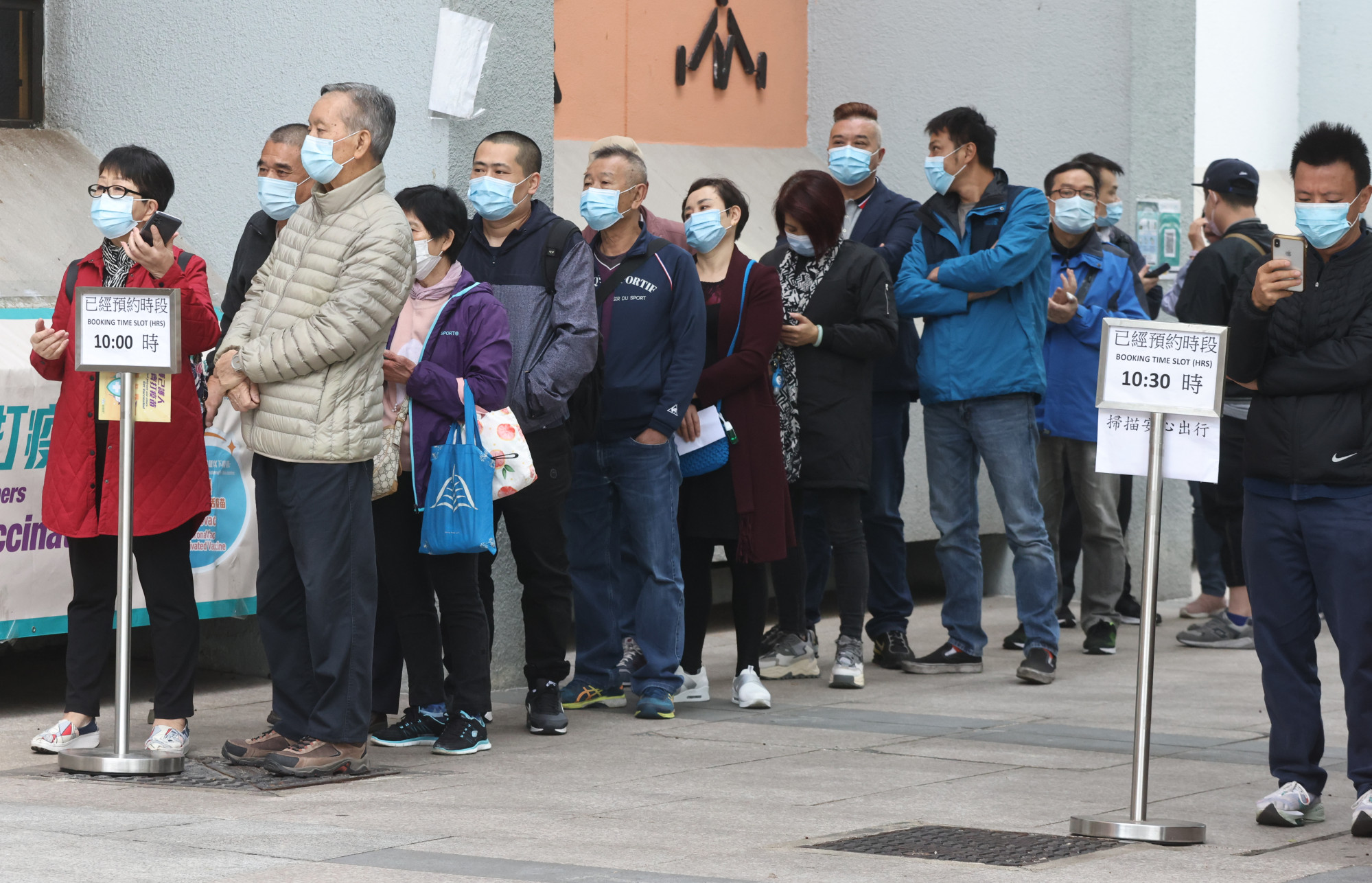
Coronavirus: Hong Kong is recording a recent surge in jabs. Is a looming vaccine passport plan causing this?
- Carrie Lam reveals delayed February 24 launch for barring the unvaccinated from venues such as restaurants, just hours after a January date was reportedly fixed
- Daily mark of vaccine jabs administered jumped from 15,000 earlier last month to 20,000 recently, while bookings at centres are full for coming weeks
Several vaccination centres citywide have been fully booked for the coming one to two weeks, with a wave of residents signing up for their first shot, especially over the festive year-end period.
Private clinics also reported a drastic rise of up to threefold in the number of people receiving their first vaccine dose.

According to government figures, an average of 15,000 shots were administered daily last month, but after authorities announced coming plans for the vaccine bubble, that mark has jumped to roughly 20,000.
Ray Chui Man-wai, chairman of the Institute of Dining Art, a catering industry body, said the January 20 roll-out date was set in a meeting with sector leaders and health officials on Monday.
“The date is fixed and we are now in discussions about the implementation details such as scanning vaccination records of patrons,” he told the Post.
But sources just a day later said the introduction of the new requirements was being pushed back until after Lunar New Year in early February, a traditionally busy time for restaurants. Lam then told her weekly press briefing that the launch date would be February 24.
According to official statistics, some 7,139 and 7,564 people received their first vaccine dose on New Year’s Day and January 2 respectively, double the average last week.
Paediatrician Dr Alvin Chan Yee-shing, who also receives adult patients, told the Post three times more people had made bookings with his private clinic for their first jab of Sinovac recently, after news emerged earlier last month of the impending vaccine bubble.
The city already requires patrons at nightclubs, bars and karaoke parlours to be inoculated for entry. Starting mid-February, government workers will have to show proof of vaccination to enter buildings under the administration.
Hong Kong experts argue for tougher approach to boosting Covid-19 vaccinations
“Many patients are worried that they will be barred from going to work without getting jabbed so they’ve come to take their first dose,” Chan said.
He added also that some patients who had a history of severe medical conditions such as brain haemorrhage or heart disease were especially worried about vaccination side effects, and had consulted him on medical proof to exempt them from the jabs.
Ray Chui said industry representatives at the meeting with health officials on Monday had raised technical problems over implementing the vaccine passport, as more staff would be required to scan records of customers.
“We told officials that the catering sector will have difficulty deploying enough staff to check diners’ vaccination records,” he said.
Chui also voiced fears the plan would drive patrons away. “There could be a chain reaction and we could lose 20 to 30 per cent of our business,” he said.
Vaccine bubble trouble? Hong Kong restaurants, bars hit by rules fatigue, app cynicism
The proposed expansion of the vaccine bubble has also forced some to alter painstakingly planned schedules.
A 34-year-old marketing manager, surnamed Kwan, said her family had to bring forward by a week their well-arranged meal to celebrate her grandfather’s 98th birthday, before the proposed rule was initially expected to kick in on January 20.
“My grandpa has dementia and does not have the ability to take care of himself, but still the doctor we consulted refuses to grant him a medical exemption,” she said. “Our family members all agree it is not worth the risk to get him vaccinated.”
‘Quiet anger’ at Covid testing regime for unvaccinated Hong Kong civil servants
Kwan said she was disappointed in the government’s proposal, which she said had failed to consider real-life challenges residents might encounter.
“I agree that we should get vaccinated for the good of society as we will be spending social resources if we unfortunately get infected,” she said. “But after all, it is one’s personal decision and you cannot force people in such a way.”
Additional reporting by Jeffie Lam

